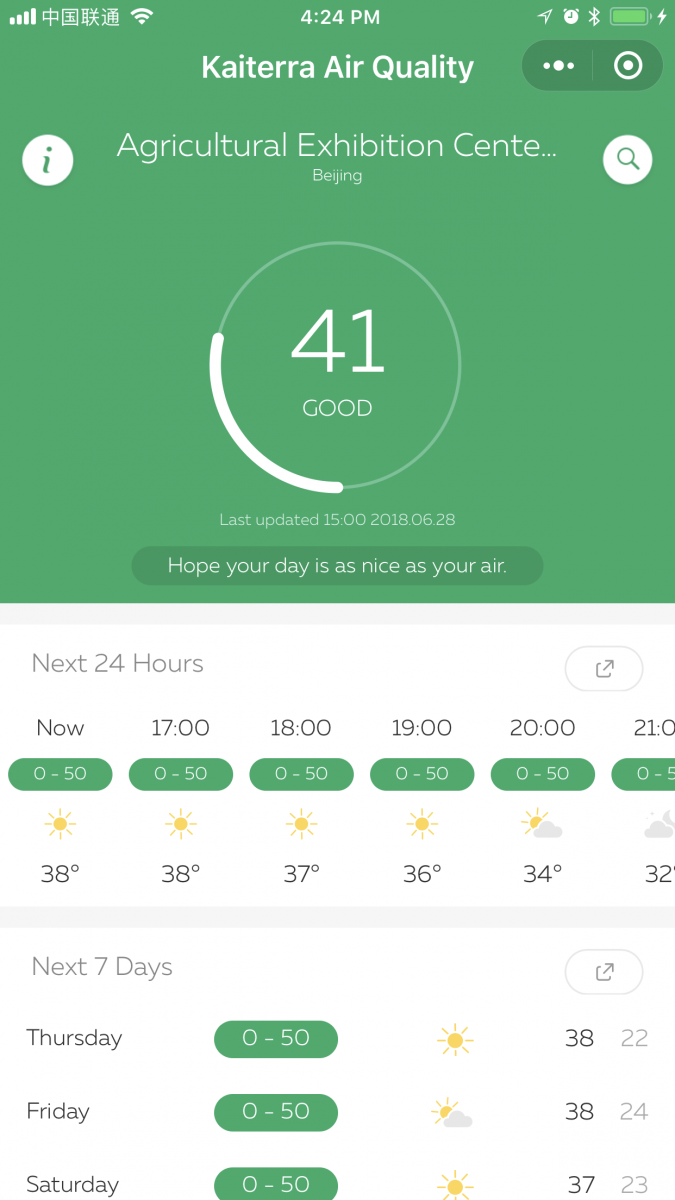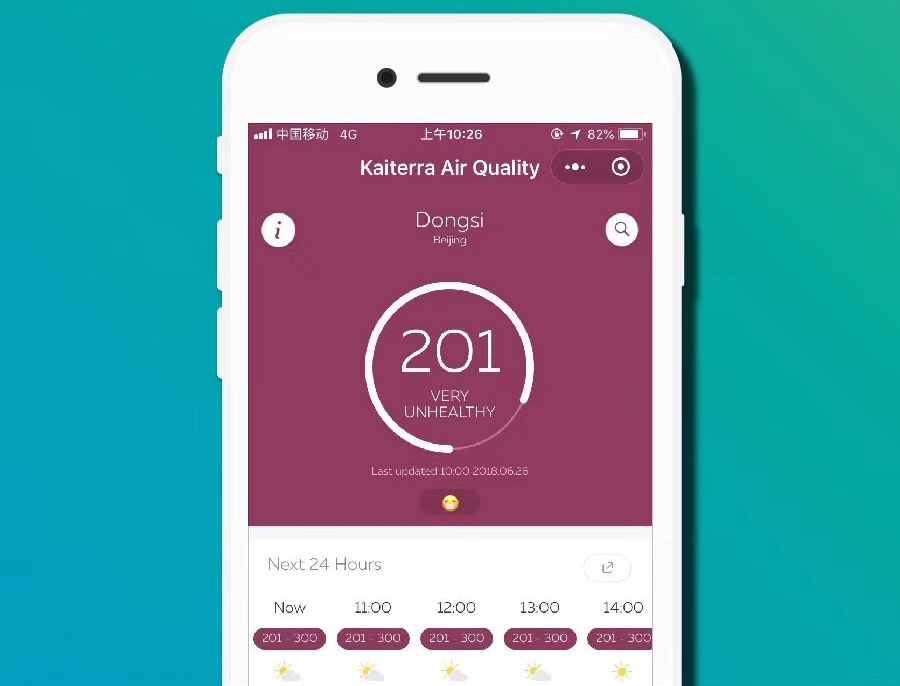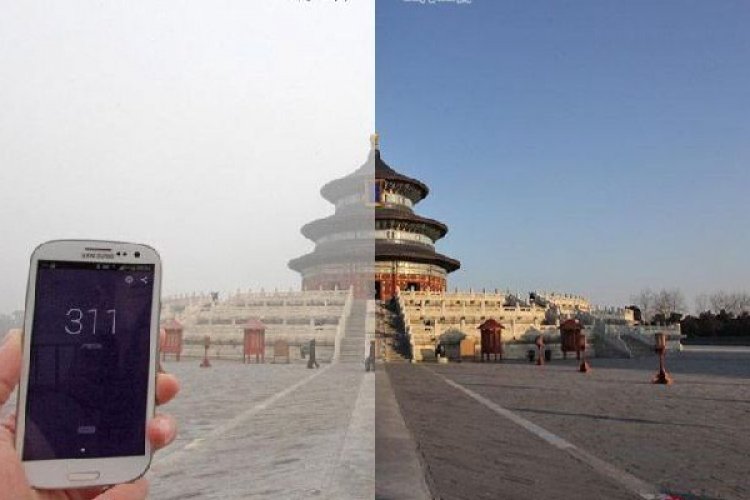Beicology: This New WeChat Mini App Provides Detailed AQI Readings and Pollution Forecasts
Although the team at Kaiterra made a major name for themselves a few years back with their Laser Egg air quality monitors, now a common fixture in many Beijing homes, businesses, and workplaces, the company is by no means restricted to hardware. To whit: the Beijing startup launched a new mini-app this week that allows users to see up to date AQI readings without leaving their WeChat app.

After extracting the QR code from the image below, the mini-app will sticky itself to WeChat's mini-app bar (to access, scroll down on the main chat page). Aside from current AQI readings, the app shows you pollution levels for the past 20 hours and even forecasts hourly readings for the following 24 hours and daily for the following seven days. Click the "i" button in the top left and you can also see what the main pollutant is at any given time.
Laura Lian, head of marketing for Kaiterra China, says the mini-app’s inspiration was a matter of practicality. “As a 16GB iPhone user, trust me, I'm constantly deleting apps that are not that useful or could be replaced with another to free up storage space, especially for selfies.” Just as that issue began to seriously bog down memory on her phone, Lian says she was “thrilled when WeChat and Alipay started integrating features into its own app,” as a more reasonable alternative.
“Because of work, I had to install a few weather/air quality apps, but to be honest, I hated keeping them because I literally only open them twice a day, and spent at most two minutes in them,” she adds. “It was how frustrated I was that made me realize how weather/air quality is a perfect fit for a built-in feature within WeChat. And luckily – nobody had done it yet (or done it well)! That was how the mini-app thought began.”

Apparently, Lian isn’t alone in that thinking. She says the mini-app has gained over 1,000 new users who contributed over 6,000 visits to the mini-app in the first 24 hours since it was launched. What’s more: on day two, Kaiterra started to see a growing percentage of people who open the mini-app through the pull-down menu (over 30 percent) – meaning users are already habitually using the mini app.
Lian adds that going the mini-app route is logical in a business sense. “And with WeChat opening up e-commerce capabilities to individuals and businesses, the e-commerce battlefield is being decentralized too: massive traffic pools like Taobao and Jingdong are still great places for sales, but businesses are kind of forced to spend more and more money to please the algorithm and improve ranking/visibility. So besides providing every day benefit for the users, as a business, we are also hoping that the mini-app can grow into an organic traffic source for our brand, and with WeChat opening up more integration options in the near future, such as mini-app and service accounts, we're hoping to create a complete customer journey loop, without ever having to leave WeChat.”
Last year, the company’s founders made the cut on Forbes’ prestigious 30 Under 30 Asia List, using the opportunity provided by increased exposure to rebrand from Origins to their current moniker Kaiterra. The founders first launched their Laser Egg air quality monitors in 2015 with the aim of tapping into the then all but unheard of low-cost air quality monitoring market.
Images: Kaiterra







